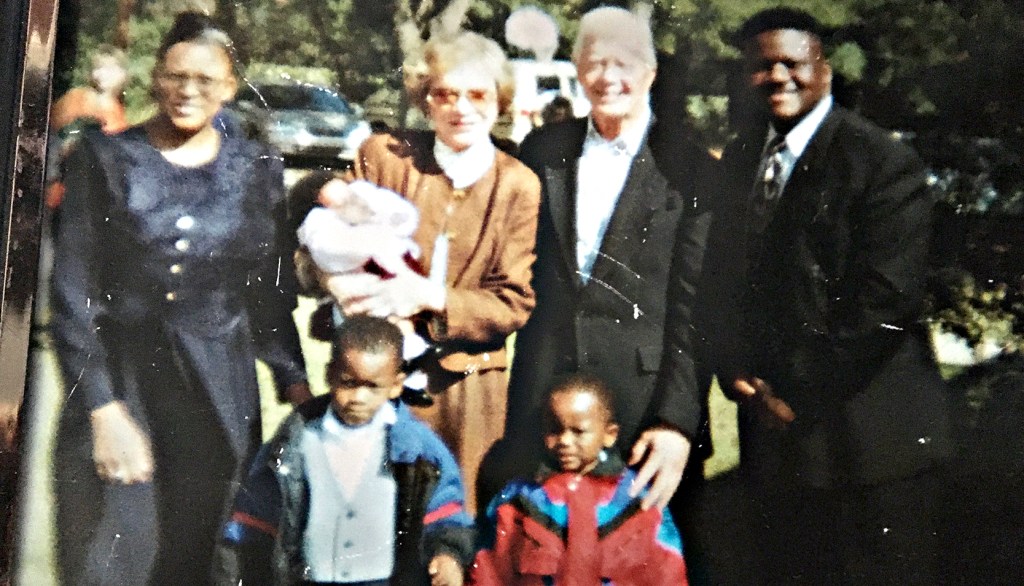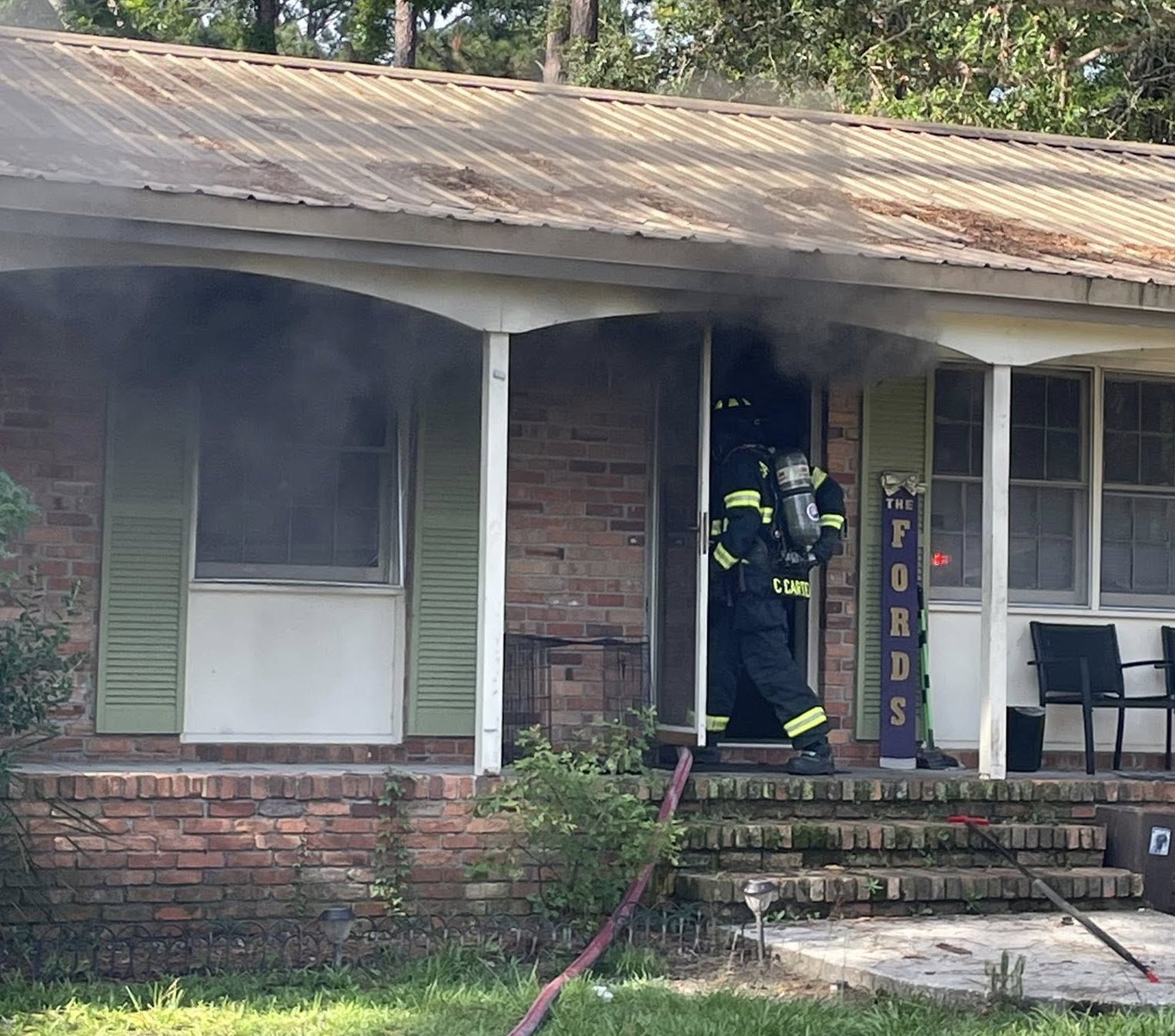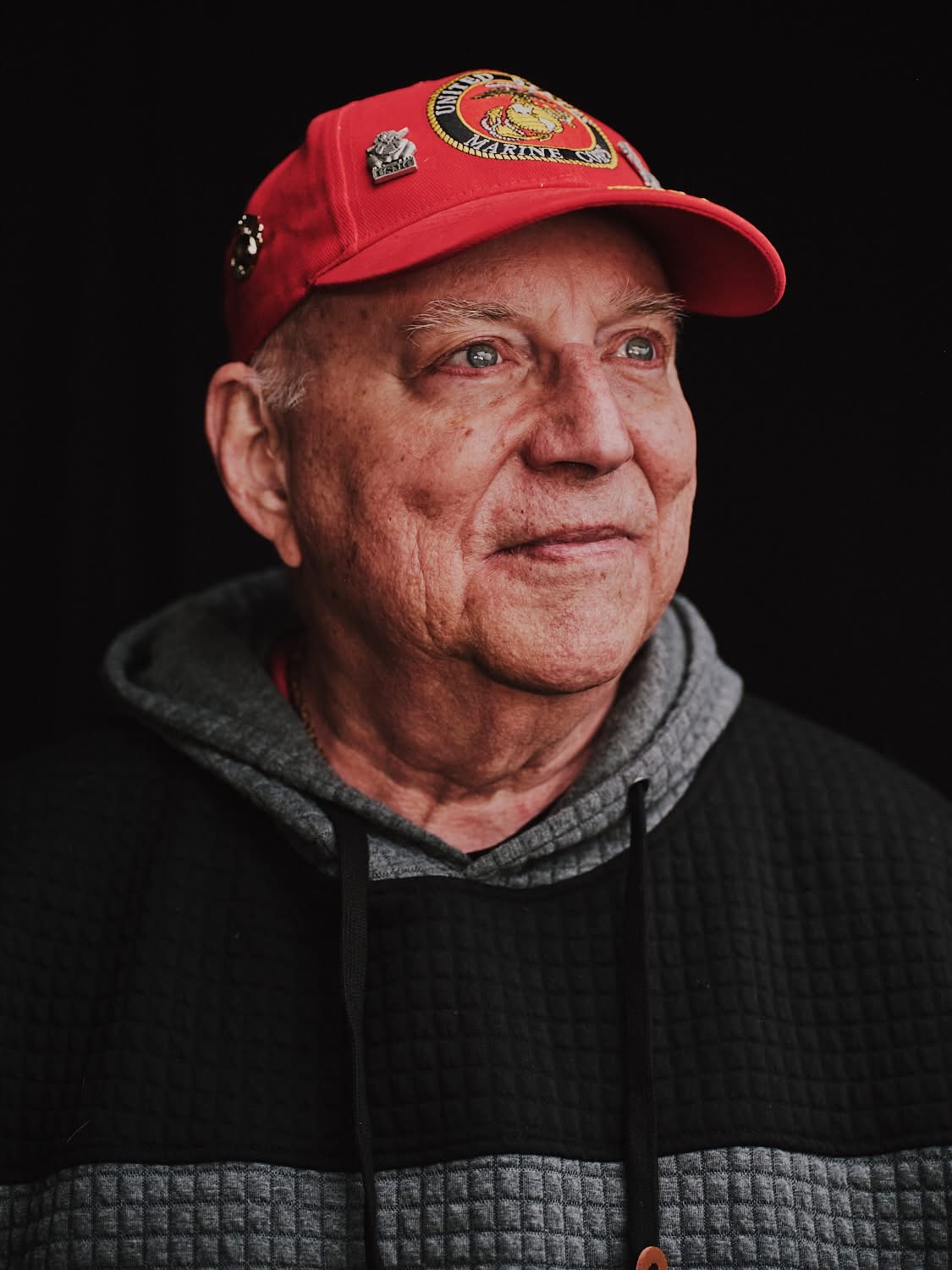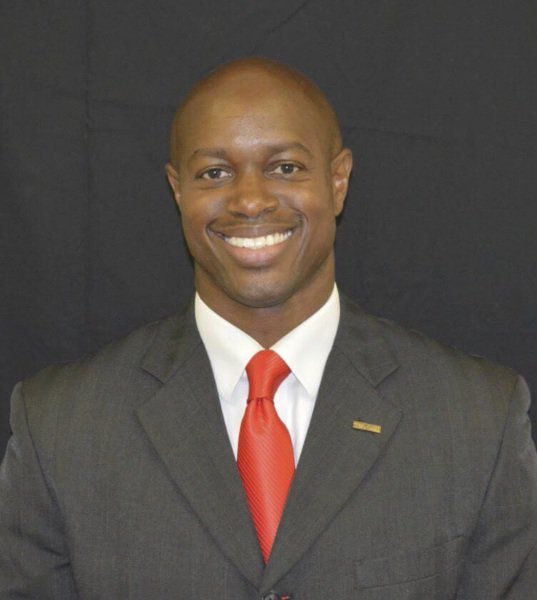Carter’s legacy lives: 39th president’s had highs, lows
Published 1:23 pm Monday, December 30, 2024

- Back row: Angela Camon, baby Camille Camon, Rosalyn Carter, Jimmy Carter and Carl Camon. Front row: Carl Camon Jr. and Aaron Camon. The Carters posed with the Camon family of Ray City for a photograph in 1998 after of the former president’s Sunday school lessons in Plains. — Photo courtesy Carl Camon.
Editor’s note: The Americus Times-Recorder, a sister newspaper to The Valdosta Daily Times, was President Carter’s hometown newspaper. It has been updating information about Carter’s death on its website, www.americustimesrecorder.com.
VALDOSTA — Jimmy Carter’s passing at the age of 100 didn’t just make him the longest lived American president but arguably the most active and influential one in the decades after he left office.
“I’m particularly proud that when our kinfolk went to the White House, they knew how to behave,” said John Kinney of Texas, referring to Jimmy Carter during a past family reunion in Plains.
Ironically, Kinney made the comment in 1998 during the impeachment era of President Bill Clinton but the comment is as applicable today as the nation struggles to accept the behavior and actions of more recent presidents.
Carter, then 73, said all of his relatives now seem to have a “cousin Jimmy” story “but there were probably times during my administration that they didn’t claim me.”
The remark reveals the duality of Carter and his legacy. Many historians refer to his one term as a weak or ineffective presidency but he led one of the most active and effective post-presidential careers in American history.
His legacy of service continued more than 40 years after leaving the White House.
That legacy will be argued for decades to come.
Kenneth E. Morris asked in “American Moralist,” his Carter biography, “Is (Carter) a moral visionary or a well-meaning but sometimes misguided moralizer?”
How will history view Carter – the Navy veteran, businessman, Georgia governor, U.S. president, author, peacemaker, humanitarian?
“I think people are looking at the things we’ve accomplished a little differently. Opinion polls are very positive about what we are doing,” Carter said in a past interview with The Valdosta Daily Times. “But I feel the only negative of our administration was not getting reelected. If we had four more years, we would have accomplished many things.”
Historians credit Carter with brokering the Camp David Accords but they give him poor marks for the loss of Iran, the hostage crisis, the Desert One tragedy and the Soviet invasion of Afghanistan.
Even complimentary remarks from historians can come off as back-handed.
With the Camp David Accords, Carter brought together the enemy nations of Egypt and Israel in 1979 for an historic signing of a peace treaty. In “A History of the American People,” conservative author Paul Johnson wrote of the Camp David Accords, “This was a notable achievement, but it remained unique in Carter’s record.”
Historians refer to the timing of the Carter presidency as unfortunate. Carter was elected president two years after President Richard M. Nixon resigned and President Gerald Ford subsequently pardoned Nixon of any potential wrongdoing in the Watergate investigation.
As Georgia’s governor, Carter ran for president as a Washington outsider, capitalizing on the country’s anti-D.C. sentiment by promising, “I’ll never lie to you.”
But public animosity toward Washington did not improve during Carter’s one-term presidency. Meanwhile, the Washington insiders whom he criticized during his campaign gave President Carter little support, even though he was a Democrat president with a Democrat majority in Congress.
Iranians took Americans hostage in 1979 – an event that loomed over the remainder of Carter’s presidency and derailed his reelection campaign. Carter was able to secure the release of the hostages but the release didn’t come until Jan. 20, 1981, minutes after the inauguration of President Ronald Reagan, with the public widely crediting Reagan rather than Carter with ending the hostage crisis.
Chip Carter, the president’s son, defended his father and his administration in a past Valdosta Daily Times interview. “The only thing he did wrong was lose the election,” Chip Carter said, then referring to other single-term presidents, “Bush did that. Ford did that.”
Unlike other former presidents, instead of hitting the golf course or the speaking circuit, Jimmy Carter remained active in political and social matters. He was only 56 years old when he left the White House.
“Dad was younger than most of the other presidents when he left office,” Chip Carter said. “He could and did start a second career.”
The ex-president didn’t worry about criticism of his administration or how historians rate his presidency, according to the son. He was always too busy and too active in his post-presidential roles.
Through the Carter Center in Atlanta, Carter negotiated peace agreements and monitored foreign elections. He worked tirelessly with Habitat for Humanity building houses for decades, including a Habitat project in Valdosta several years ago.
He remained active until entering hospice care a couple of years ago. Even then he issued statements regarding elections and other matters.
“He keeps threatening to slow down but he never does,” Chip Carter said in 1998. “When he says he’s going to slow down and take it easy, we don’t take it seriously any more. We know he’s going to keep on going.”
Jimmy Carter kept on going and going.
Links to Valdosta and the area
Jimmy Carter was the President who had likely visited Valdosta more than any other. The late Edith Smith, who worked for The Valdosta Daily Times for more than 45 years, recalled Carter visiting the newspaper’s offices during his run for governor in the 1970s. He also visited Valdosta in the years following his presidency.
Carl Camon, author and former mayor of Ray City, and his family met President and Mrs. Carter in 1998 at Maranatha Baptist Church in Plains, where the former president taught Sunday school for many years.
“We must have been the youngest family there,” Camon said; only three of their four children had yet been born.
He described his conversation with the former president as “mostly pleasantries,” telling him how much they had wanted to attend one of his Sunday school classes.
After the Sunday school lesson, the Carters posed with the Camon family for a photograph, with Mrs. Carter holding baby Camille Camon.
In 2010, Camon met Carter again at a Plains election fundraiser for state Sen. George Hooks.
“It was a fish dinner and President Carter was wearing a Hooks election shirt,” he said. “Again, when we talked it was mostly pleasantries.”
The former Ray City mayor was at Jekyll Island visiting family over the weekend when he heard of Carter’s passing.
“I looked at my phone and there it was in the newsfeed,” he said. “Not ten seconds later my daughter said ‘Did you hear about Jimmy Carter?’ ”
“He was an awesome example of how a Christian is supposed to carry themselves,” Camon said. “He was salt of the Earth.”
In 2003, Carter came to Valdosta on behalf of Habitat for Humanity to help build a Habitat house. His visit was part of the Jimmy Carter Work Project, which aimed to build 25 houses in seven days for those who were less fortunate. During his stay, he took part in a dinner at Valdosta State University that was hosted by VSU’s former first lady, Joan Bailey.
Terry Richards of The Valdosta Daily Times contributed to this story.





